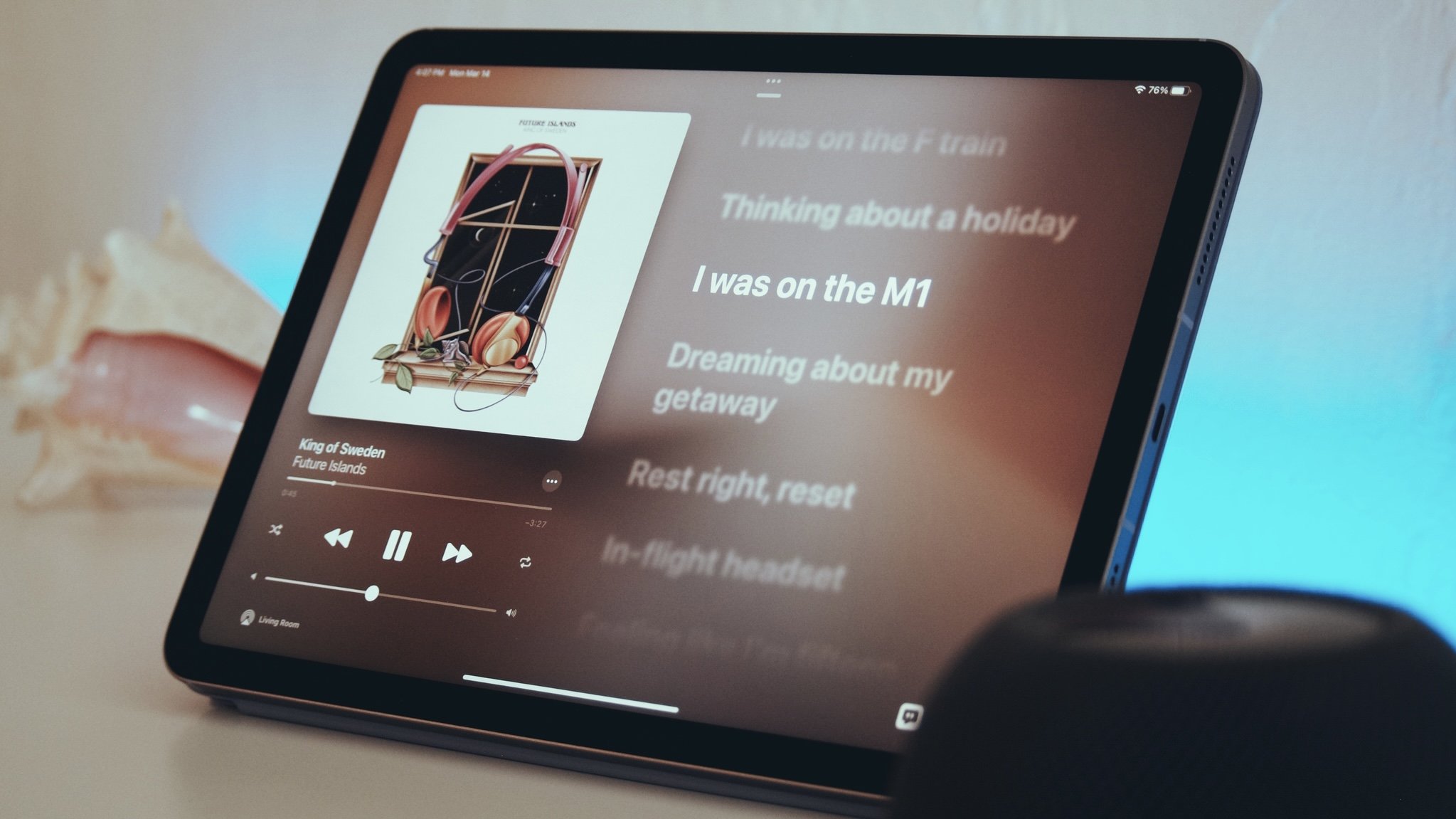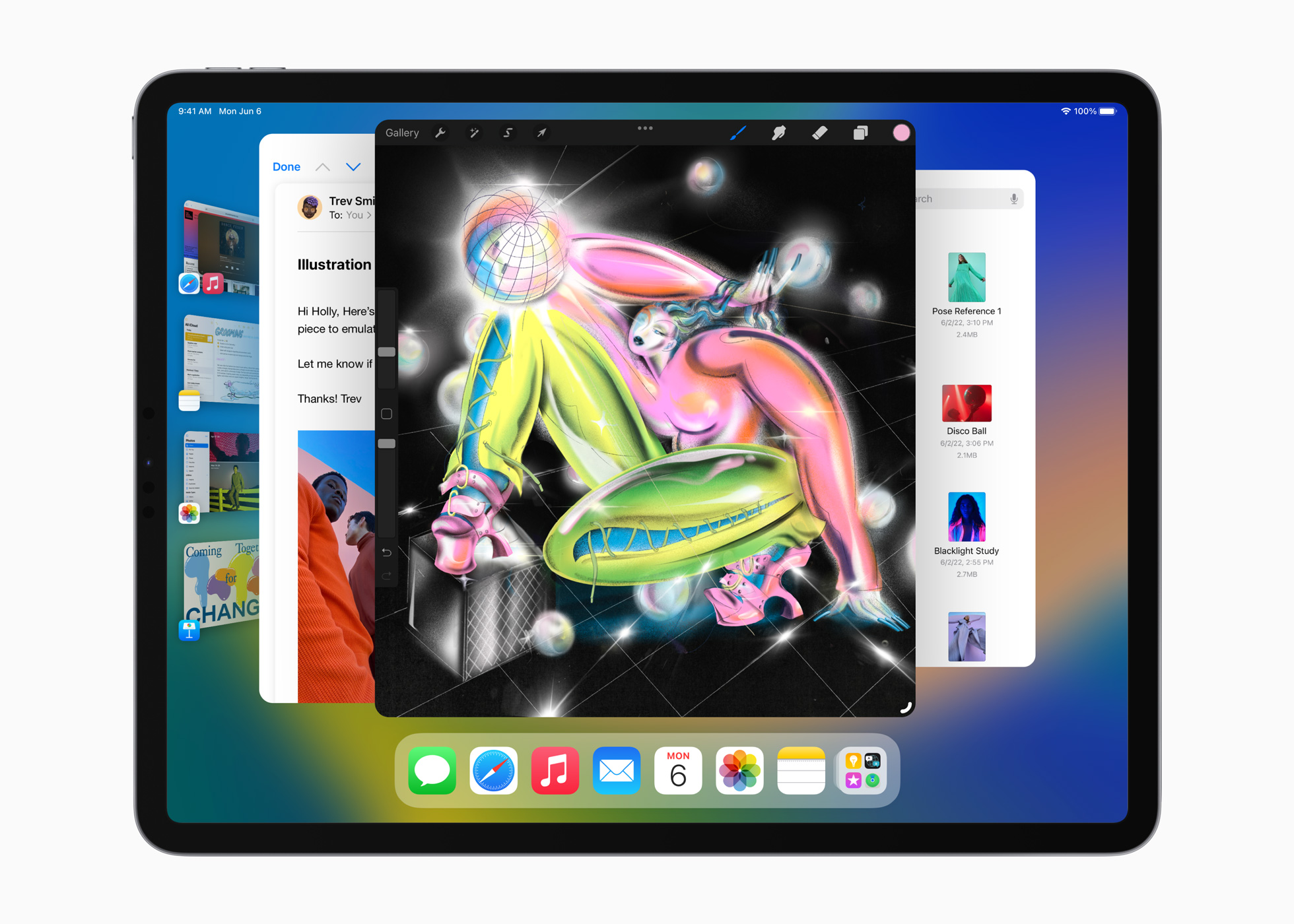We wanted the iPad to make use of M1— but not with Stage Manager

Apple's Worldwide Developer Conference (WWDC) 2022 has come and gone. With it, we got a peek at all of the new software that is to come later in the year for all of our Apple devices: iPhone, iPad, Mac, Apple Watch, and Apple TV. Heck, we even got a brand new MacBook Air with M2 coming in about a month's time, and, for some reason, a 13-inch MacBook Pro with M2 as well.
But one of the biggest controversies that came out of WWDC22 comes in the form of iPadOS 16 and Stage Manager. Ever since the iPad Pro (2021) came out with an M1 chip inside, many (including myself) have asked, "Why?" For the past few years, the iPad has been hindered by its own software, iPadOS, and when the M1 iPad Pro came out, there was nothing that took advantage of the M1 chip powering it.
That all changed after the announcement of iPadOS 16. In fact, one of the biggest new features of the new software, Stage Manager, is limited exclusively to iPad models with an M1 chip inside. This means right now, the only iPad models that can make use of Stage Manager in iPadOS 16 are the iPad Pro (2021) and fifth-generation iPad Air.
As great as Stage Manager looks to be, this isn't what most users had in mind when wanting Apple to "make use of" the iPad's M1 chip.
Multiple window multitasking has been around for a long time

The main premise of Stage Manager is not an entirely new concept — it's just window management, a thing that's been around on computers for years. Stage Manager is the ability to resize your iPad apps so that they overlap with each other, bringing the best iPad experience closer to, you know, an actual computer. While you're limited to four apps on the iPad itself, you can bring in an external display (with up to 6K resolution) for another four apps. That means the total number of apps that you can use with Stage Manager would be eight.
The problem with Stage Manager is the fact that it is limited to M1 iPads, so just the 2021 iPad Pros and the iPad Air 5. Apple's reasoning for this is supposedly because of virtual memory swap. As of right now, Apple claims that you can only get super fast virtual memory swap with M1 because of the high DRAM capacity that is combined with very high capacity, high-performance NAND flash memory. The result is Stage Manager being instantaneously responsive, whereas that just wouldn't be possible with non-M1 iPads.
Apple requiring M1 for such a basic feature is a little silly.
But really, multitasking with multiple windows at once has been around long before Apple silicon — ever since I first started using a computer back in the 1990s, I could have multiple windows and apps running alongside each other. So Apple requiring M1 for such a basic feature of, well, a computer, is a little silly.
Now, a year ago we were all going with the discourse that putting an M1 chip in an iPad was a waste because nothing in iPadOS 15 took advantage of it. But now we're getting iPadOS 16, and Stage Manager is the headliner feature that's apparently making use of the M1. However, the problem is no one really asked for window management to be the big feature that made use of the M1's power in an iPad.
There were better ways to make use of M1 in an iPad
I think the biggest wish for many people when it comes to M1 iPads was never something like Stage Manager. Instead, I believe that what most people want is the ability to run desktop-level pro apps like Final Cut Pro, Xcode, Logic Pro, the complete Photoshop, Blender, Cinema 4D, and more. Heck, even a few of those apps I just mentioned are made by Apple for macOS.
These pro-level apps are what people have been wanting to be able to run on an iPad for years, and we still don't have that capability. Considering how often Apple touts the iPad as being a "laptop replacement," it's silly that the iPad still doesn't have those pro apps that people want, especially something like Xcode. Many developers wish they could code and simulate their apps while using an iPad, instead of having to bring a MacBook with them when they're out. After all, why is it called iPad "Pro" if you can't even do pro-level work?
Compromises could be made
According to Craig Federighi, Apple tried getting Stage Manager on non-M1 iPads and wasn't satisfied with the performance, so the company simply decided to leave the major feature out for all non-M1 iPads with iPadOS 16. Honestly, I feel like some compromises could have been made, but Apple just took the easier route and left it out. Maybe even a watered-down version of Stage Manager, where you could only have three windows at once instead of four — I would have been satisfied with that, or something along those lines.
Maybe I'm just overly salty that my 2020 iPad Pro is already rendered obsolete when I usually buy Apple products for longevity. But it's annoying that Apple isn't interested in making some compromises, and also won't give the iPad a true "pro" use case besides Stage Manager. Hopefully, that will change in the future, but only time will tell.
Master your iPhone in minutes
iMore offers spot-on advice and guidance from our team of experts, with decades of Apple device experience to lean on. Learn more with iMore!
Christine Romero-Chan was formerly a Senior Editor for iMore. She has been writing about technology, specifically Apple, for over a decade at a variety of websites. She is currently part of the Digital Trends team, and has been using Apple’s smartphone since the original iPhone back in 2007. While her main speciality is the iPhone, she also covers Apple Watch, iPad, and Mac when needed. When she isn’t writing about Apple, Christine can often be found at Disneyland in Anaheim, California, as she is a passholder and obsessed with all things Disney, especially Star Wars. Christine also enjoys coffee, food, photography, mechanical keyboards, and spending as much time with her new daughter as possible.

